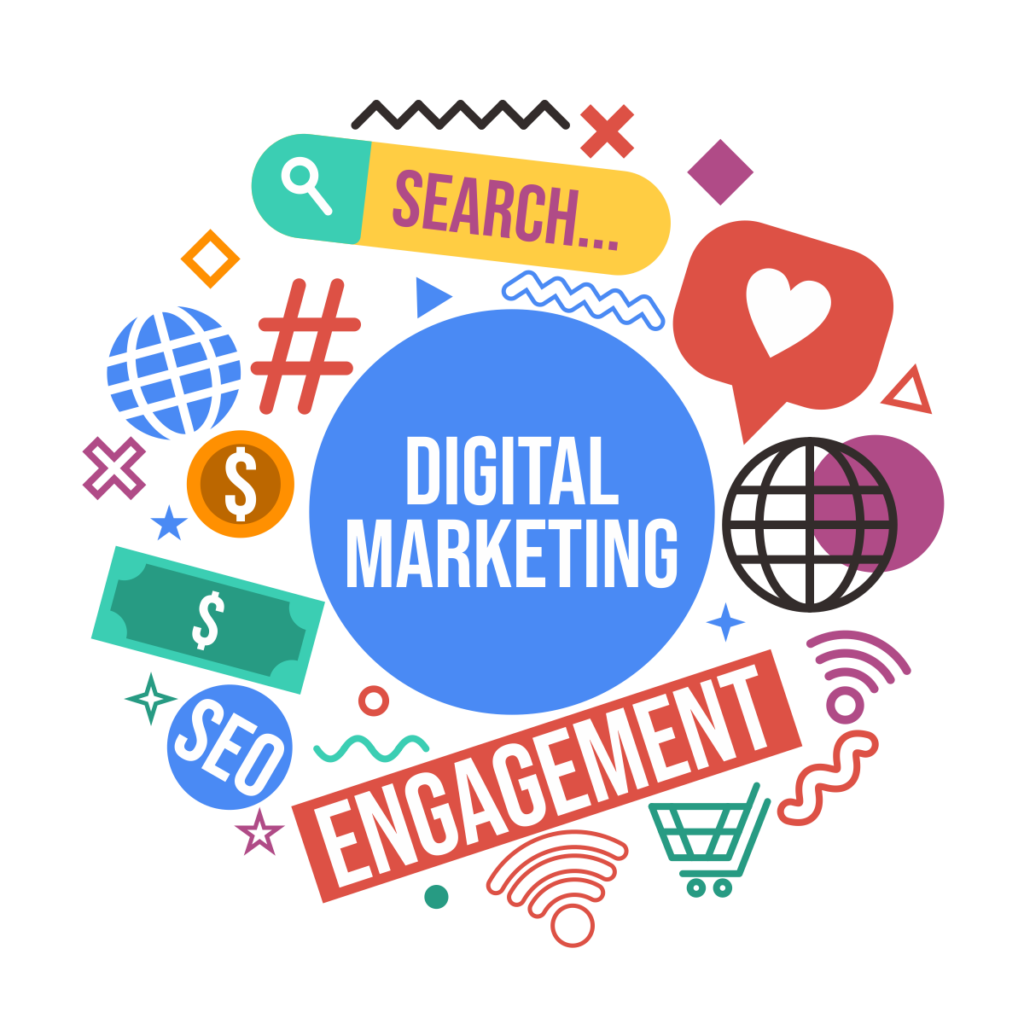Can We Consider digital marketing as an IT Job?
In today’s tech-driven world, digital marketing has become a cornerstone for business success. This evolution has led many professionals to ask: digital marketing is an IT job? While digital marketing primarily falls under the marketing umbrella, its increasing reliance on technology means it overlaps significantly with IT roles. This article explores how digital marketing intersects with IT, the skills required for these roles, and why understanding both fields is crucial for success.
What is Digital Marketing?
Digital marketing is the strategic use of digital channels—such as websites, mobile devices, and social media—to promote products and services. It leverages technology, real-time data, and automation to engage the right audience and achieve business goals. Below are the key components of digital marketing.
1. Search Engine Optimization (SEO)
Marketers optimize websites to rank higher on search engine results pages (SERPs), increasing visibility and organic traffic.
2. Pay-Per-Click Advertising (PPC)
Advertisers pay a fee each time their ad is clicked, driving traffic to their website.
3. Email Marketing
Marketers create targeted email campaigns to engage audiences and nurture leads.
4. Social Media Marketing
Managing social platforms to promote brands, engage with customers, and build community.
5. Content Marketing
Developing valuable content such as blogs, videos, and infographics to attract and retain customers.
These strategies rely on technology to function effectively, producing measurable results and enhancing user engagement.
The Relationship Between Digital Marketing and IT Roles
To determine whether digital marketing is considered an IT job, we must examine the overlapping areas of these fields. In today’s digital landscape, many marketing roles demand technical expertise. Let’s explore the key intersections between digital marketing and IT:
1. Website Development and Technical Optimization
Websites serve as the backbone of digital marketing campaigns. Ensuring they perform optimally across devices is a collaborative effort between digital marketers and IT professionals.
- SEO and IT Collaboration: SEO experts work with web developers to improve site speed, structure, and mobile responsiveness. Proper coding practices and secure platforms help achieve better rankings and user experiences.
For example, an SEO specialist may suggest changes to the website’s meta tags or URL structure, while IT professionals implement these changes using code.
2. Data Analytics and Interpretation
Digital marketing thrives on data-driven decision-making. Marketers analyze metrics like user behavior, traffic patterns, and campaign performance using tools such as Google Analytics.
- Role of IT in Analytics: IT teams develop, integrate, and maintain these tools. While marketers focus on interpreting data, IT ensures the tools run efficiently and securely.
A strong understanding of data analytics empowers marketers to refine their strategies, making campaigns more effective.
3. Marketing Automation and CRM Systems
Automation tools like HubSpot, Marketo, and Salesforce streamline repetitive tasks such as email marketing, lead nurturing, and customer segmentation.
- IT’s Role in Automation: IT professionals maintain backend systems, integrate tools, and ensure data security.
Marketers use these platforms to enhance personalization and improve customer engagement, while IT teams ensure the technology supports these efforts seamlessly.
4. Cybersecurity and Data Protection
Handling customer data responsibly is crucial in digital marketing. Security breaches can harm brand reputation and result in legal penalties.
- IT’s Role: IT teams manage security protocols to protect sensitive information.
- Marketers’ Responsibility: Digital marketers must comply with regulations such as GDPR and CCPA, understanding how data is collected, stored, and used.
5. SEO and Technical Skills
Technical SEO involves optimizing elements like site speed, mobile-friendliness, and page load times—aspects that directly impact rankings.
- Coding Knowledge: SEO professionals often need basic coding skills (e.g., HTML, CSS) to address technical issues effectively.
This blend of marketing and technical expertise highlights the overlap between these fields.
6. Cloud Computing and Integration Tools
Cloud computing platforms such as Google Cloud, AWS, and Azure are integral to digital marketing efforts. They support data storage, analytics, and campaign execution.
- Marketers’ Use: These platforms enable campaign personalization and data analysis.
- IT’s Role: IT teams manage cloud systems, ensuring their security and functionality.
Collaborating on cloud-based tools ensures seamless marketing execution and robust technical support.
The Rise of Hybrid Roles in Digital Marketing and IT
The demand for professionals who understand both marketing and technology has given rise to hybrid roles. These positions combine the creative aspects of marketing with the technical skills of IT. Examples include:
1. Marketing Technologist
These professionals ensure that marketing tools integrate smoothly with IT systems.
2. Data Analyst
Data analysts use technical tools and marketing knowledge to interpret data and predict trends.
3. SEO Specialist
SEO experts blend marketing strategies with technical know-how to optimize website performance.
4. Conversion Rate Optimization (CRO) Specialist
CRO specialists improve website performance using both technical tools and marketing insights.
Hybrid roles underscore the growing interdependence of marketing and IT, offering exciting opportunities for those with diverse skill sets.
How IT Professionals Can Transition into Digital Marketing
If you’re an IT professional interested in digital marketing, here are actionable steps to get started:
1. Learn Digital Marketing Fundamentals
Familiarize yourself with core areas such as SEO, PPC, content marketing, and email campaigns.
2. Master Analytics Tools
Gain proficiency in tools like Google Analytics and Google Tag Manager. These are essential for measuring campaign performance.
3. Explore Marketing Automation
Understand platforms like HubSpot and Marketo to learn how businesses automate marketing tasks.
4. Dive Into Technical SEO
Learn the technical aspects of SEO, such as site architecture, schema markup, and crawling.
5. Stay Updated on Emerging Technologies
Stay informed about trends like AI, machine learning, and blockchain that influence digital marketing and IT.
Combining your IT expertise with marketing skills can open doors to dynamic career opportunities in hybrid roles.
Conclusion: Digital Marketing as an IT Job
While digital marketing originates from the marketing field, its increasing reliance on technology means it intersects significantly with IT. Website development, data analytics, cybersecurity, SEO, and marketing automation all require technical expertise. Consequently, today’s digital marketers must blend creativity with technical skills to succeed.
In summary, digital marketing jobs are deeply connected to IT roles. Professionals who understand both disciplines will gain a competitive edge in the tech-driven marketplace. As the digital landscape evolves, the fusion of marketing and IT will continue to shape the future of business, making technical knowledge indispensable for marketing success.



